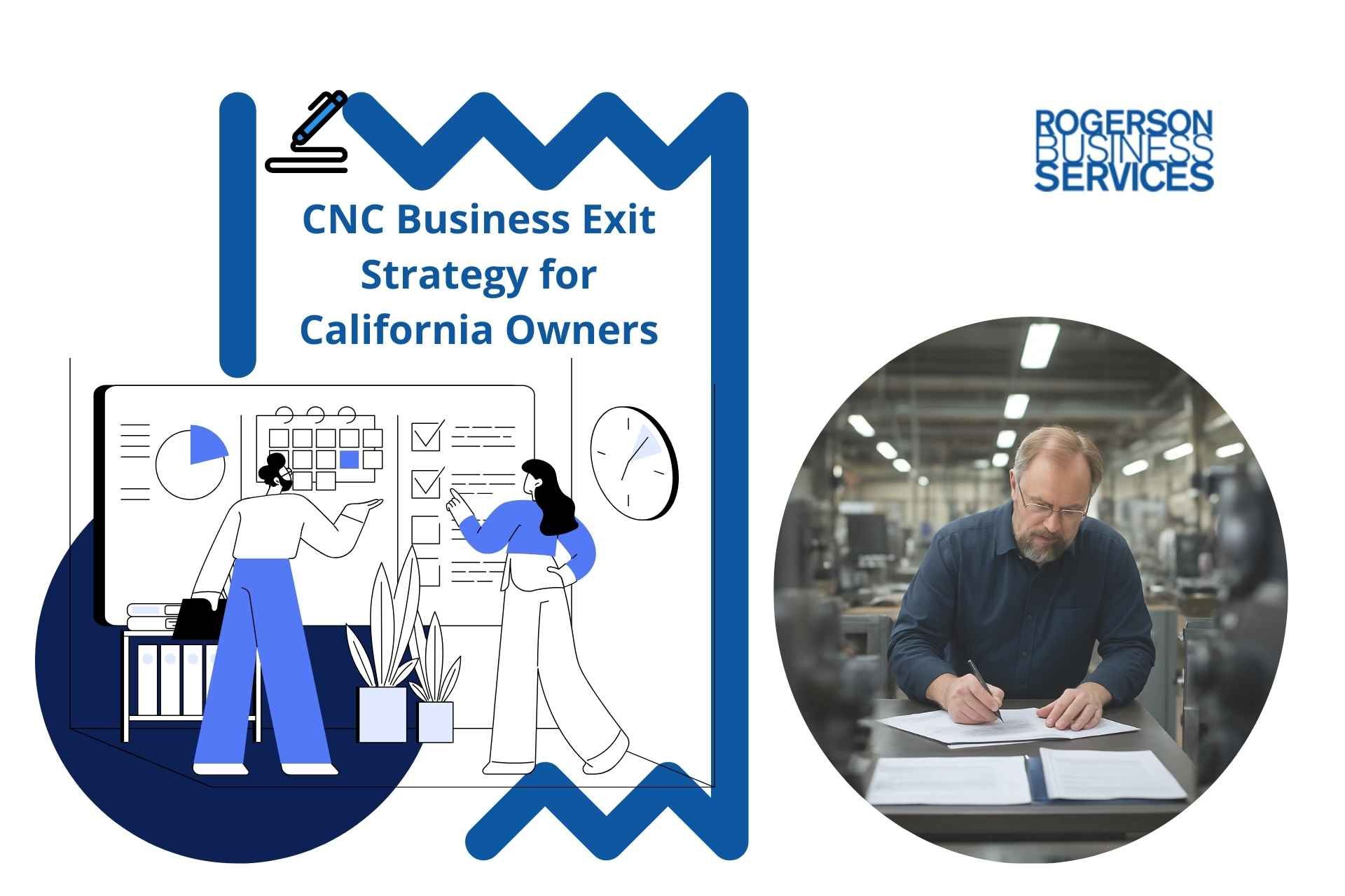3 Reasons: Why to Sell a Cosmetics Manufacturing Business in California

Retiring and finally getting to enjoy the fruits of one’s labor is the end-goal of a lot of middle market manufacturing business owners, especially those who founded and grew a manufacturing businesses to the peak of success. But there is one big question that every business owner should ask themselves: “When is the right time to sell?” The answer to this question is critical in order to determine when is the best moment to exit and sell the manufacturing business and maximize your profits, whether it’s to move on to other ventures or to enjoy the benefits of retirement.
When thinking about retiring, another option mid-market business owners can take is to sell their manufacturing company in California for a huge profit. Many entrepreneurs think about
business exit strategy as early as the moment they break ground and oftentimes
selling a business and how much tax to pay on the sale at some point is part of those exit strategies. This is particularly true for many consumer products manufacturing companies.
The cosmetics products industry is a field that has been seeing a number of small to mid-market companies for sale being acquired by larger corporations. Steve Davis, the managing director and head of beauty and personal care practice of Intrepid Investment Bank, said in an interview with voguebusiness.com that beauty and skincare deals coming to the market in 2020 are at a record level.¹ The industry is strong and only getting stronger – it is predicted to exceed $716B by 2025.
Companies that champion sustainability, inclusivity and the use of natural ingredients are said to be very appealing to prospective buyers. In addition, businesses that specifically cater to older women and people of color and those that have good socio-political values likewise catch the eye of investors. Brands that have these and more have a strong chance of being sold to large companies, especially during this time of COVID-19 crisis where consumers are now returning to big brands they know and trust, making the large companies pursue smaller brands more.
But aside from retirement, what are the other reasons to sell your cosmetics manufacturing business? And how can you get the most out of your business if and when you decide to exit the industry and sell?
Top Reasons to Sell Your Manufacturing Business
1. Bankroll a new business or venture
Sometimes, the opportunity to start a new goal using an idea or concept that has been brewing in an entrepreneur’s head arrives at the right moment, but not at the ideal financial situation. When this happens, that opportunity can close fairly quickly if a cosmetics manufacturer doesn’t have the right funding. Before this situation happens, selling a manufacturing business ahead of time, while the demand for it is high and you can make the most money out of your business, is the right way to go.
2. Can’t grow it any further
When a business hits a plateau for one reason or another, it can get stagnant and stay at a spot that can cause the lower middle market business owner to lose the drive and passion that made it possible to start and grow the business in the first place. There is nothing wrong when this happens and sometimes, all it needs is a fresh set of hands and minds to take it beyond where the manufacturing business is at that moment.
3. Loss of passion or interest
Eventually, middle-market cosmetics manufacturers can get burned out, lose steam, or simply move on to other industry sectors. Whether the business started out as a hobby that grew to a profitable venture or a meticulously planned project with the goal of making money, manufacturers can come to a point where the industry sector is no longer of a motivational force to stay on..
All of these are often considered when creating exit strategies for business and are valid reasons to put up the lower mid-market manufacturing businesses for sale. But before you take this route, knowing the current value of your business is essential. To do that, business valuation is a must.
Business Valuation: Get the Best Selling Price for Your Company
Business valuation is the process of knowing the economic value of your business for the purposes of selling, taxation, and the like. By undergoing business valuation, a manufacturing business owner in California would know how much his/her business is worth and how to calculate the value of the business prior to selling it. There are several methods used for valuation, such as market capitalization, times revenue method, earnings multiplier, and so on, which are employed by professional business appraisal.
Popular Questions to Ask During the Valuation Process
Some of the most popular questions asked during the valuation process are ones that you too could answer for yourself and can help you have an idea of your own business’ value to supplement the professional’s assessment. These include:
1. Does your company manufacture its own cosmetic products or do you produce them for other brands?
2. Does your company sell only its own products, other makers’ products, or a combination of both?
3. Who are your suppliers? Do you know their standings and reputations in their respective industries?
4. What is your company’s current standing in terms of scale and popularity, and who are its customers?
5. How can the new owners grow the business even further?
Answering these, along with having the business properly valued, can help you determine not just the amount to
sell a business for, but also when and to whom in order to maximize the selling price. And once you’ve done this, it is time to prepare to sell your business.
Tips to Ready Your Cosmetic Business for Sale
Here are some tips to ready your cosmetics manufacturing business for sale:
1) Get a business valuation and prepare all documentation
Assuming the business has already been valued, the next step is to prepare all documentation, with financial information and legal paperwork being the top priority. Formal statements, tax returns, incorporation papers, business permits, licensing agreements, lease contracts, and other legal documents should be prepared and made ready
2) Know your buyer and make a good impression
Whether it’s a small-medium business owner looking to grow or a large corporation looking to add your business to theirs, knowing fully well who your buyer is and how to make a good impression on them can work wonders when selling your business. For example, a serial acquirer often buys companies that help them try new things.
3) Get your deal team ready
Do your due diligence and assemble your advisors, lawyers, and brokers in one deal team to help you go through the M&A selling process smoothly.
4) Keep the business going until selling time
Selling can take some time to happen, and you would not want your business to suffer while waiting as it gives the buyer more leverage when negotiating.
Final Take
Whether it is for retirement or to pursue other ventures and passions, selling your cosmetics manufacturing business can be the key to that next stage of your life. To ensure that you do so properly and smoothly, having a manufacturing business broker can greatly help ease many burdens and maximize your business’ potential so consider having one as part of your team when the time comes to exit and sell your business.
Get started with this selling a manufacturing business guide to learn more.
Reference and further reading
1. Schaffer, Jessica, Beauty’s M&A boom to continue in 2020
2. Harris Atmar, Sara Hudson, Anish Koshy, Stefan Rickert, and Rodrigo Slelatt,
The next normal in consumer: Implications for Consumer Goods M&A
3. Barb Renner, Pawan Kapoor, Shweta Joshi, Justin Cook, Serial and small: M&A strategies that work for consumer products companies
https://www2.deloitte.com/us/en/insights/industry/retail-distribution/cpg-m-and-a.html, 2020
Hey there! Can we send you a gift?
We just wanted to say hi and thanks for stopping by our little corner of the web. :) we'd love to offer you a cup of coffee/tea, but, alas, this is the Internet.
However, we think you'll love our email newsletter about building value and properly position your company before transition/exit your business ownership.
As a special welcome gift for subscribing, you'll also get our helping and educational guides, tips, tutorials, etc.. for free.
It's filled with the best practices for retiring serial business owners like Dan Gilbert, Larry Ellison, Warren Buffett, and many more.
Just sign up for our emails below.


